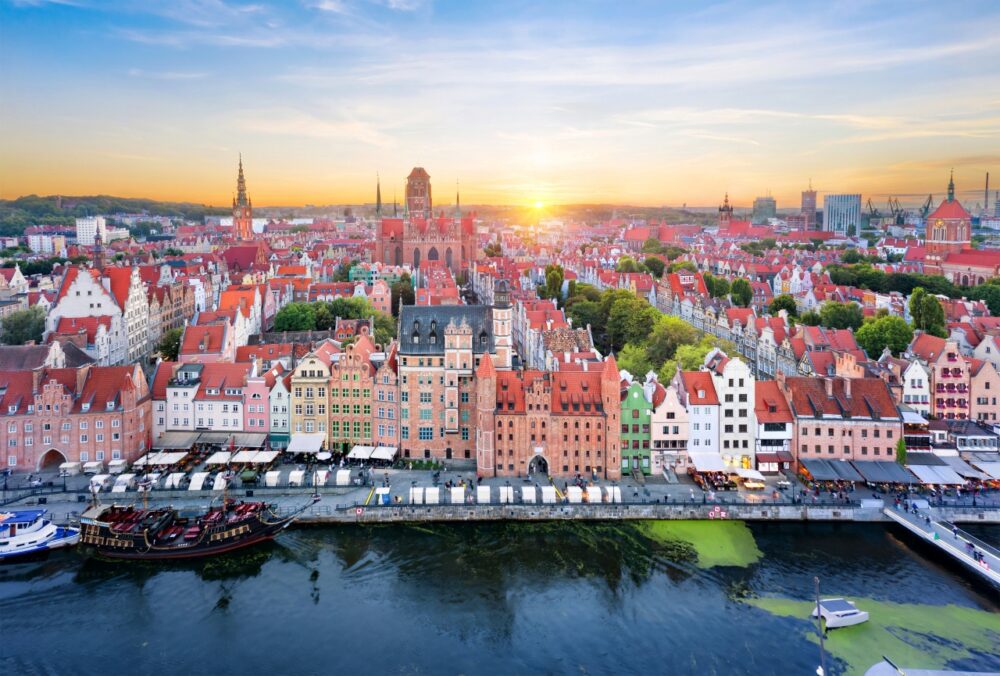
Is Gdańsk worth visiting? Without a doubt! The first time I strolled through Gdańsk, I was mesmerised by its colourful architecture, fascinating history, and unique seaside charm. Standing in the heart of Long Market, surrounded by beautifully restored townhouses, and hearing the waves from the nearby Baltic Sea, I knew I’d found a city that’s both historic and vibrant.
Located on Poland’s northern coast, Gdańsk is a port city with a rich maritime and cultural heritage. Known as one of the key hubs of the Hanseatic League, the city boasts stunning landmarks like the towering St. Mary’s Church, the iconic Neptune Fountain, and the atmospheric streets of its Old Town. But Gdańsk isn’t just about history—it’s also a city with a modern energy, thanks to its trendy cafés, fantastic seafood, and creative arts scene. Add to this its connection to major historical moments, like being the birthplace of the Solidarity movement, and Gdańsk becomes a destination that’s as educational as it is beautiful.
But is Gdańsk worth visiting for you? In this blog post, we’ll explore the top 10 reasons why Gdańsk should be on your travel list, from its breathtaking Old Town to its role in world-changing history. Plus, we’ll share travel tips to help you make the most of your visit to this fascinating Polish city. Keep reading to discover why Gdańsk is a coastal gem you won’t want to miss.
Table of Contents
Pros – Reasons You Should Visit Gdańsk
1. A Beautiful and Well-Preserved Old Town with Historic Charm
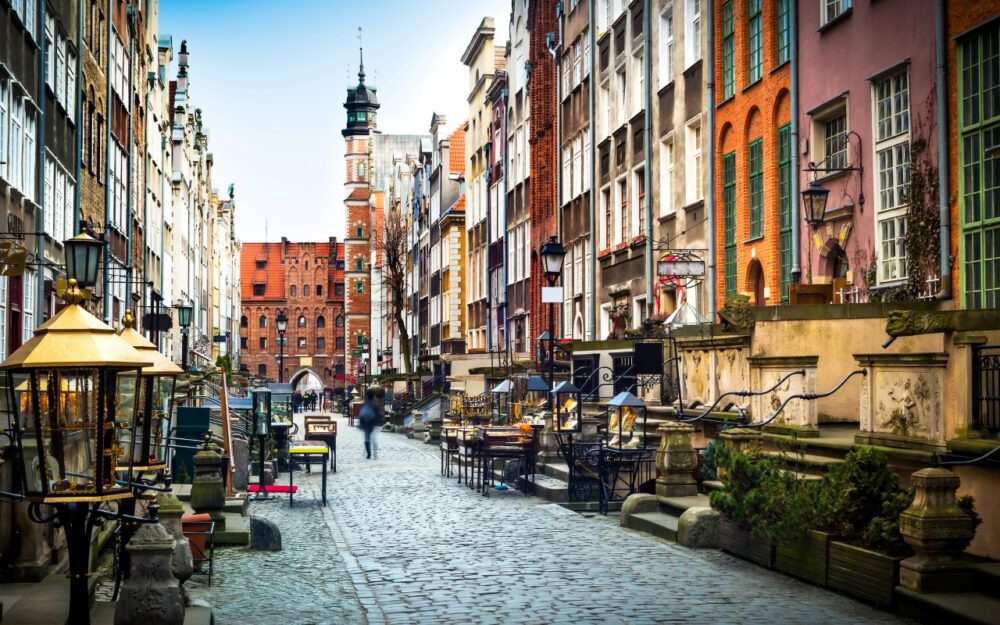
Gdańsk is one of Poland’s most stunning cities, with an Old Town that feels like something from a fairy tale. Unlike some other historic cities in Europe, where modern buildings often overshadow the past, Gdańsk has carefully preserved its medieval and Hanseatic heritage. The colourful, ornate buildings that line the streets, along with the cobbled alleyways and grand churches, create a charming atmosphere that makes wandering through the city an experience in itself.
One of the highlights of Gdańsk is Długi Targ (Long Market), the city’s main street, lined with beautifully restored merchant houses in shades of pastel pink, green, and gold. At one end of the street stands the Neptune Fountain, an iconic symbol of the city, while at the other, the Golden Gate marks the entrance to the Old Town. I particularly enjoyed strolling along Mariacka Street, a narrow and atmospheric lane known for its amber shops, Gothic architecture, and charming cafés. Whether you visit in the morning when the streets are quiet or in the evening when the city is glowing under lantern light, Gdańsk’s Old Town is undeniably captivating.
2. A Fascinating History That Shaped Europe
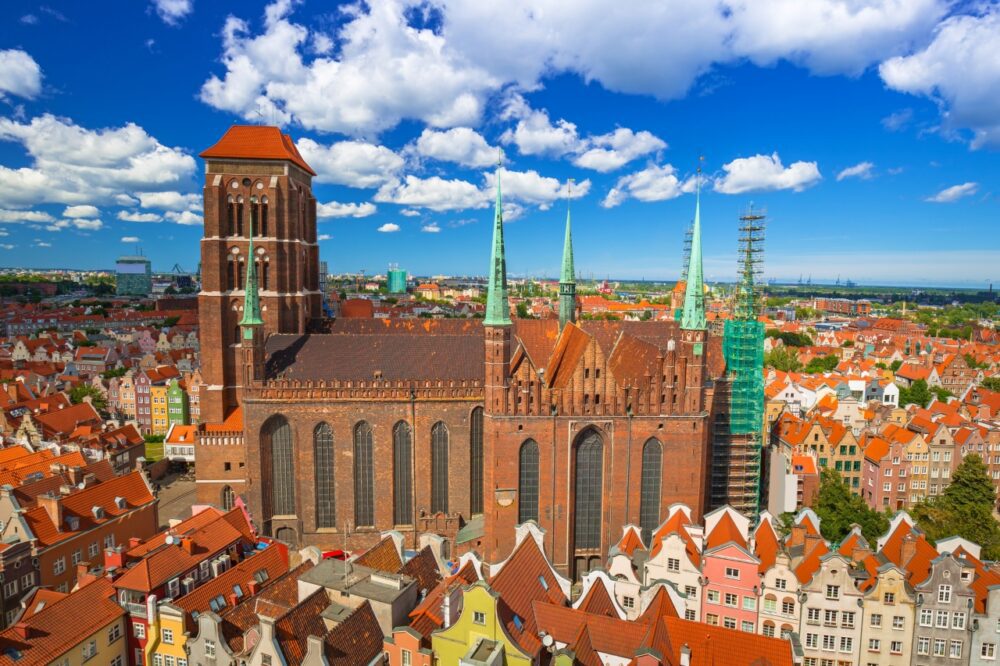
Gdańsk has played a crucial role in European history, from being a key member of the Hanseatic League to being the place where the Second World War began. The city’s past is complex and layered, making it one of the most historically significant destinations in Poland. Unlike some cities where history is confined to museums, Gdańsk’s past is woven into its streets, buildings, and waterfront, allowing visitors to experience it in a very tangible way.
One of the most moving places to visit is the Westerplatte Memorial, where the first shots of the Second World War were fired in 1939. Walking through the ruined barracks and reading the stories of the soldiers who defended Poland against the German invasion was both emotional and eye-opening. Equally fascinating was the European Solidarity Centre, a museum dedicated to the Solidarity movement, which played a major role in ending communist rule in Poland. The interactive exhibits and personal stories made it one of the best historical museums I’ve visited, helping me understand Gdańsk’s crucial role in shaping modern Europe.
3. A Stunning Waterfront with a Lively Atmosphere
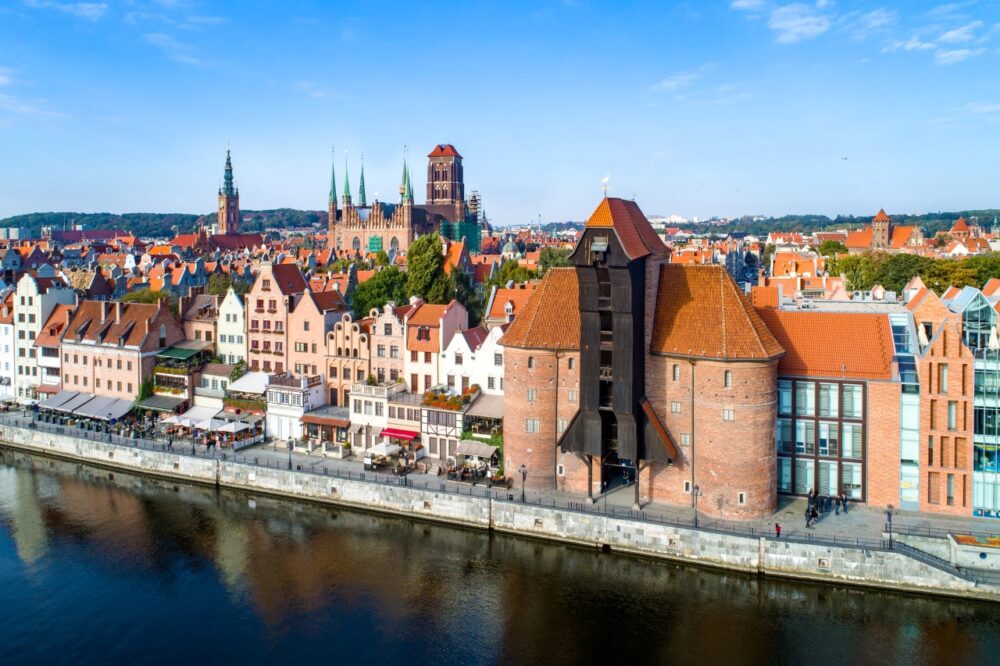
The Motława River runs through Gdańsk, creating a picturesque waterfront that is one of the city’s most vibrant areas. The historic Gdańsk Crane, a medieval wooden crane once used for loading cargo onto ships, dominates the skyline, reminding visitors of the city’s maritime past. Along the river, you’ll find a mix of historic buildings, modern cafés, and scenic walking paths, making it the perfect place to relax and take in the atmosphere.
One of my favourite experiences in Gdańsk was taking a boat trip along the river, which offered a different perspective of the city and its impressive mix of old and new architecture. The waterfront is also home to some fantastic restaurants serving fresh seafood, and I enjoyed a meal of grilled Baltic fish while watching the boats glide by. In the evenings, the area becomes even more atmospheric, with twinkling lights reflecting off the water and street musicians adding to the charm.
4. Affordable Prices Compared to Other European Cities
Despite its beauty and rich history, Gdańsk remains an affordable destination, especially when compared to cities in Western Europe. Accommodation, food, and attractions are all reasonably priced, making it a fantastic choice for budget-conscious travellers who still want a high-quality experience. Whether you’re dining in a restaurant, booking a hotel, or exploring the city’s museums, you’ll find that your money goes much further here than in other popular European destinations.
I was pleasantly surprised by how affordable everything was, from high-quality meals to entrance tickets for major attractions. A hearty traditional Polish dish like pierogi (dumplings filled with meat, cheese, or mushrooms) or bigos (hunter’s stew with sauerkraut and sausage) cost far less than similar meals in Western Europe. Even accommodation in the heart of the Old Town was reasonably priced, allowing me to stay in a charming boutique hotel without exceeding my budget. For travellers looking for an affordable yet beautiful and culturally rich city, Gdańsk is an excellent choice.
5. Easy Access to the Baltic Coast and Beautiful Beaches
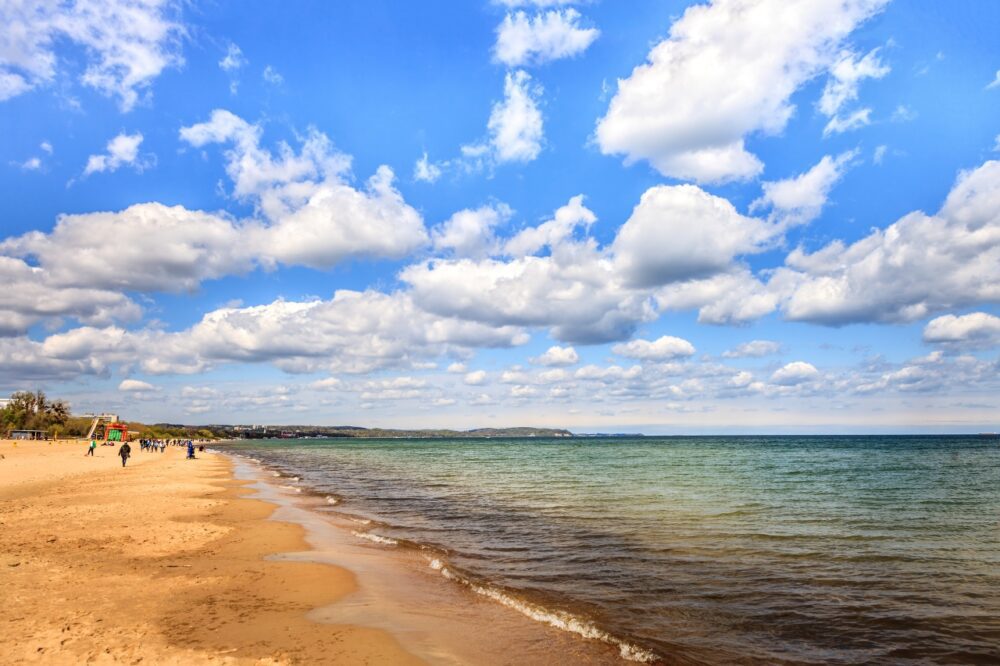
Gdańsk is not just a historic city—it also offers easy access to the Baltic Sea, with several beautiful beaches just a short journey away. The nearby coastal towns of Sopot and Gdynia are part of the Tri-City area, making them perfect for day trips. These seaside destinations offer sandy shores, scenic piers, and a completely different atmosphere from the Old Town, allowing visitors to combine history with relaxation.
I took a short train ride to Sopot, which is famous for its wooden pier, the longest in Europe. Walking along the pier with the sea breeze in my hair, watching people relax on the beach, was a refreshing change from the busy city streets. The beach itself was clean and inviting, with golden sand and shallow waters perfect for swimming. Whether you want to sunbathe, take a boat tour, or simply enjoy the coastal scenery, the Baltic coastline near Gdańsk offers plenty of opportunities to unwind.
6. A Fantastic Food Scene with Traditional Polish and International Flavours
Polish cuisine is hearty and flavourful, and Gdańsk is one of the best places to experience it. The city offers a great mix of traditional Polish food, fresh seafood, and modern international dining, making it an excellent destination for food lovers. The local restaurants and markets provide a chance to try authentic dishes, many of which reflect Gdańsk’s maritime heritage and cultural influences.
One of my favourite meals was żurek, a traditional sour rye soup served with sausage and a boiled egg. The combination of tangy broth and smoky sausage made it incredibly comforting, especially on a chilly evening. Another must-try dish was kaszanka, a type of black pudding that was surprisingly rich and flavourful. For dessert, I tried szarlotka, a Polish apple pie often served with a dusting of powdered sugar. With so many great restaurants, cafés, and street food stalls, Gdańsk is a fantastic place to explore Polish cuisine at its best.
7. A City That Feels Less Touristy Than Other European Destinations
While Gdańsk is becoming more popular with travellers, it still feels far less touristy than other major European cities. Unlike places like Prague or Venice, where the crowds can sometimes be overwhelming, Gdańsk retains an authentic and relaxed atmosphere. You can explore its historic streets, museums, and restaurants without constantly feeling like you’re in a tourist trap.
I loved the fact that, despite its beauty, Gdańsk didn’t feel overcrowded or overly commercialised. Even in peak season, it was easy to find quiet spots to sit and soak in the atmosphere. The locals were friendly and welcoming, and the lack of mass tourism meant that prices remained reasonable, and experiences felt more genuine. For travellers looking for a city that offers history, culture, and charm without the overwhelming crowds, Gdańsk is an ideal destination.
Cons – Things to Consider When Visiting Gdańsk
1. The Weather Can Be Unpredictable and Often Chilly
Gdańsk, like much of northern Poland, experiences unpredictable weather throughout the year. Due to its location on the Baltic coast, the city often sees rapidly changing conditions, with sudden rain showers, strong winds, and cooler temperatures even in the summer months. While the winter can be particularly harsh, with freezing temperatures and snowfall, spring and autumn can also be quite chilly, making it important to pack accordingly.
I visited Gdańsk in early June, expecting mild summer weather, but instead found myself caught in a rainstorm that lasted most of the afternoon. The sky remained grey for much of my stay, and the cool breeze from the Baltic made it feel much colder than I had anticipated. Even when the sun did come out, the temperature dropped significantly in the evenings, making a jacket essential. While the city is still beautiful in any weather, those expecting a warm, sunny break might be disappointed, especially if they are hoping to visit the nearby beaches. If you plan to explore the coast, it’s always a good idea to check the forecast and bring extra layers, just in case.
2. Some Areas Can Feel Quite Touristy, Especially in Peak Season
While Gdańsk is less crowded than major European tourist hotspots, it has become increasingly popular in recent years. During the peak summer months, the Old Town, particularly Długi Targ (Long Market) and the waterfront, can feel quite touristy, with large groups filling the streets and prices at cafés and restaurants noticeably higher than in other parts of the city. Some shops cater mainly to visitors, selling overpriced souvenirs rather than authentic local products.
I noticed this particularly around the Neptune Fountain, where tourists gathered for photos, making it difficult to fully appreciate the square’s historic charm. Many of the restaurants lining Długi Targ had menus in multiple languages and staff standing outside trying to lure people in, which made the experience feel less authentic. However, by venturing just a few streets away from the main attractions, I found quieter areas where local life continued at a more relaxed pace. If you prefer a more peaceful experience, visiting in the early morning or outside of peak summer months, such as in late spring or early autumn, can make a huge difference.
3. Public Transport Can Be Inconsistent and Confusing for Visitors
While Gdańsk has a public transport system that includes buses, trams, and trains, it can sometimes be confusing for visitors, especially those unfamiliar with Polish transport networks. Unlike larger cities like Warsaw or Berlin, where metro systems provide easy connections, Gdańsk relies mainly on trams and buses, which do not always run as frequently as expected. Additionally, some ticket machines only accept cash or are located far from tram stops, which can make navigating the system frustrating for first-time visitors.
I had a few difficulties using public transport in Gdańsk, particularly when trying to reach Westerplatte and the nearby seaside towns of Sopot and Gdynia. While the SKM trains between the Tri-City area are generally reliable, I found that some services were delayed or had limited English signage, making it tricky to figure out which platform to use. The trams in the city centre were useful, but the routes were not always clearly marked, and some older trams lacked digital displays, meaning I had to rely on Google Maps to check when to get off. If you’re planning to use public transport, it’s worth downloading a local transport app or familiarising yourself with routes in advance to avoid unnecessary confusion.
4. Some Attractions and Restaurants Close Early, Especially in the Off-Season
One of the things that surprised me about Gdańsk was that many attractions, museums, and even some restaurants closed earlier than expected, particularly outside of the summer season. Unlike in larger European cities where nightlife and late-night dining are common, Gdańsk has a more relaxed pace, meaning that after 9 or 10 pm, options for food and entertainment can be quite limited.
I ran into this issue when trying to visit the European Solidarity Centre in the late afternoon, only to realise that it was closing earlier than I had anticipated. Similarly, on one evening, I struggled to find a restaurant still serving food after 10 pm, as many places had already shut their kitchens. While bars and pubs remain open later, the overall atmosphere in the city quietens down significantly in the evenings, especially outside of the peak tourist season. If you’re someone who enjoys late-night dining or a more active nightlife, it’s important to plan ahead and check opening hours to avoid disappointment.
When to Visit Gdańsk
The best times to visit Gdańsk, Poland’s historic port city, are late spring (May to June) and summer (July to August), when the weather is warm and perfect for exploring the Old Town or relaxing on the nearby Baltic beaches. Summer also brings festivals like the St. Dominic’s Fair, adding a lively atmosphere to the city. Autumn (September) offers cooler temperatures and fewer crowds, while winters are quieter, with Gdańsk’s Christmas markets transforming the city into a festive wonderland.
How to Get to Gdańsk
Gdańsk Lech Wałęsa Airport (GDN), located about 15 kilometres from the city centre, serves as the main gateway, with flights from European cities via airlines like Ryanair, Wizz Air, and Lufthansa. From the airport, the SKM train connects to the city in around 30 minutes, while buses and taxis are also available. For those travelling within Poland, Gdańsk is accessible by PKP Intercity trains, with direct connections to cities like Warsaw, Kraków, and Poznań. Ferries from Sweden and Denmark also dock at nearby Gdynia, making Gdańsk an excellent stop on a Baltic Sea route.
Where to Stay in Gdańsk
Gdańsk offers a variety of accommodation options for all budgets and preferences:
- Luxury: Old Town – Stay near iconic landmarks like St. Mary’s Basilica and Long Market. Consider Radisson Blu Gdańsk or Hotel Podewils, offering five-star comfort with historic charm.
- Mid-range: Motława Riverfront – Ideal for scenic views and easy access to attractions. Options like PURO Gdańsk Stare Miasto and Hotel Gdańsk Boutique blend modern amenities with central locations.
- Budget: Wrzeszcz District or Hostels in the Old Town – Affordable choices like Hostel Filip 2 or La Guitarra Hostel provide good value in lively and well-connected areas.
Getting Around Gdańsk
Gdańsk’s compact Old Town is best explored on foot, with attractions like Neptune’s Fountain, Long Market, and St. Mary’s Basilica within easy walking distance. For longer distances, the ZTM public transport network includes trams and buses, with single tickets or day passes available at kiosks or via mobile apps. The SKM commuter train connects Gdańsk to nearby Sopot and Gdynia, perfect for day trips. Cycling is a great way to explore the waterfront or nearby beaches, with bike rentals and dedicated paths widely available. Taxis and ride-hailing apps like Bolt are convenient but less necessary due to the efficient public transport system.
How Long to Spend in Gdańsk
Two to three days is ideal for experiencing Gdańsk’s highlights, including the Old Town, European Solidarity Centre, and the scenic Motława River. This allows time to visit the Gdańsk Shipyard, explore the WWII Museum, and enjoy the city’s vibrant dining and nightlife. With an extra day, consider a trip to Sopot, a charming seaside resort, or Malbork Castle, a stunning medieval fortress just an hour away. Gdańsk’s rich history, cultural depth, and coastal charm make it one of Poland’s most fascinating destinations.
Conclusion
So, is Gdańsk worth visiting? Absolutely! With its stunning Old Town, rich maritime history, and vibrant culture, Gdańsk is one of Poland’s most captivating destinations. Highlights like Long Market, the Solidarity Museum, and the picturesque waterfront make it a city packed with unforgettable experiences. While it can be quieter in the off-season, this only adds to its charm. If you’re ready to explore a city where history meets modern energy, start planning your trip to Gdańsk today—you’ll fall in love with its unique character!
